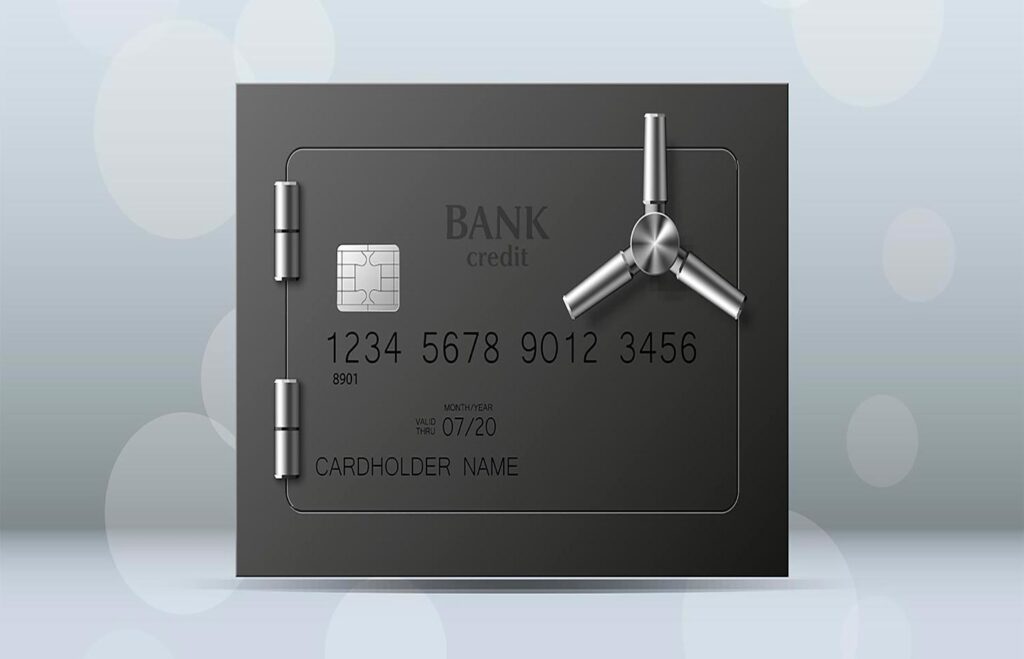The average cost of a data breach is $3.86 million.
Over the last few years, SaaS corporations like Adobe, Microsoft, Dropbox, and more have made headlines for falling victim to large-scale cyberattacks. And the frequency of attacks like these is still on the rise. According to Accenture, data breaches have increased by 11% since 2018 and by 67% since 2014.
In fact, the World Economic Forum considers cyberattacks to be one of the top five risks to global stability.
When it comes to cybersecurity, subscription-based businesses are presented with a unique billing challenge that businesses dealing in one-time transactions are not: they need to store credit card numbers for recurring transactions.
Many subscription businesses continue to use older legacy software to manage their billing without realizing how much of a security risk this poses to their customers and to business.
Spreadsheet billing and homegrown billing software are business vulnerabilities
A surprising number of businesses still do their billing manually using spreadsheets. As these documents don’t offer any sort of encryption or extended security features, it shouldn’t be surprising to imagine customers’ sensitive information being compromised by malicious actors.
Other subscription businesses use older, homegrown legacy software to manage their recurring billing. Replacing a billing system isn’t an easy task. So, these types of businesses often won’t consider finding a new solution as long as the current software is still functioning to handle billing.
Here’s the problem with that.
While modern billing solutions are being consistently worked on and improved every couple of weeks, homegrown legacy systems are time-consuming and costly for developers to update. Maintenance of such billing systems may require a reallocation of development resources away from core business activities.
This usually means these older billing systems are not updated at all—and as a result, any newly-discovered security vulnerabilities are not being repaired.
PCI compliance and your business’s data security
The Payment Card Index Data Security Standard (PCI DSS) is a set of requirements every vendor accepting credit cards must comply with. These requirements dictate the minimum acceptable standards for how securely customers’ sensitive information is maintained in a vendor’s systems.
In the event of a data breach, customers’ payment card numbers, names, and addresses could all be compromised by hackers. The PCI DSS—despite seeming specific to credit card information—helps improve your business’s overall security posture, as it also protects all the other personal data associated with the card.
Non-compliance with PCI requirements could have hugely negative consequences on your subscription business. Penalties, such as:
- fines up to $100,000 per month
- legal action, and
- being prevented from continuing business altogether.
The problem is, becoming PCI compliant is a hugely difficult task.
Specific requirements vary depending on the type of business, so some may have more hoops to jump through than others. The entire process of updating or creating systems in accordance with PCI requirements can span years. In fact, it’s common for businesses to fail their assessment on the first and even second try.
Some of the more notoriously complicated requirements include the following.
- Requirement 6.2, which dictates how your IT team must keep up with any third-party software patches as they are released
- Requirement 2.4, which focuses on maintaining an inventory of assets within your software that could be subject to PCI DSS
- Requirement 3, which outlines the guidelines for how merchants should store any applicable data
The good news?
Using a PCI-compliant recurring billing software such as Stax Bill enables you to offload many of the PCI requirements, including Requirement 3 relating to data storage.
Modern recurring billing software like Stax Bill takes the unique needs of subscription billing into account. These solutions have been built specifically for businesses that need to store customer credit card information, and were made to do this securely, usually in compliance with PCI standards.
What to look for in a recurring billing software
When evaluating the security features of a recurring billing software, PCI compliance is the bare minimum. A billing software that isn’t PCI-compliant shouldn’t even be on your list of vendors to consider.
Beyond PCI, there’s another set of regulations focused on IT and data security, called SOC 2. Working with SOC 2-compliant recurring billing providers can serve as secondary layer for promoting customer trust in your business.
However, it’s important to be aware that SOC 2 certification shouldn’t be a replacement for PCI certification, but rather a complement.
As mentioned before, modern recurring billing software is built with the specific security concerns of a subscription business in mind—namely the need to store credit card information for ongoing transactions. So, additional features should be built into the software to help keep this stored payment data safe.
Stax Bill, for example, has security features such as strong password requirements for the end-users and forced password cycling. It also prevents users of the software from viewing or exporting full, unmasked credit card numbers.
In addition, the Stax Bill platform is PCI Level 1 certified and will soon become SOC 2 compliant.
Recurring billing software keeps your business data-resilient
No business is immune to cyberattacks. Data security is no longer a nice-to-have software feature; it’s non-negotiable. No matter how big or small your business is, cyber-resiliency needs to be a priority.
In a world where cyberattacks happen every 39 seconds, the security of your product is just as important as the product itself.
Stax Bill’s compliance with PCI (and soon SOC 2) regulations takes much of this security burden off your business’s shoulders and shows your users they can trust you to take the security of their information seriously.
While it’s impossible for any business or software to be completely invulnerable to an attack, choosing a secure, modern recurring billing software helps you become far more resilient than older billing alternatives ever could.
Quick FAQs about PCI Compliance
Q: What is PCI Compliance and why is it important for a subscription business?
PCI DSS (Payment Card Index Data Security Standard) is a set of requirements that vendors accepting credit cards must comply with. These standards ensure that customers’ sensitive information is securely maintained. Subscription businesses, in particular, need to securely store credit card numbers for recurring transactions, and PCI compliance is crucial in this aspect.
Q: What kind of risks does outdated billing software pose to subscription businesses?
Outdated or legacy billing systems may not be updated regularly to patch any newly-discovered security vulnerabilities. This poses a significant risk to the security of customers’ sensitive information, making the business susceptible to large-scale cyberattacks.
Q: What are the consequences of non-compliance with PCI requirements?
Non-compliance with PCI requirements can lead to severe penalties, including fines up to $100,000 per month, legal action, and the potential to be prevented from continuing business operations.
Q: What are some of the main requirements for PCI compliance?
Some fundamental requirements for PCI compliance include Requirement 6.2 (keeping up with third-party software patches), Requirement 2.4 (maintaining an inventory of assets within your software that could be subject to PCI DSS), and Requirement 3 (guidelines for how merchants should store applicable data).
Q: How does PCI-compliant recurring billing software protect a subscription business?
PCI-compliant recurring billing software like Stax Bill is designed with the unique needs of subscription billing in mind. It securely stores customer credit card information in compliance with PCI standards, thereby reducing the risk of data breaches.
Q: What other security certifications should a recurring billing software have?
In addition to PCI compliance, the software should also strive for SOC 2 certification. This focuses on IT and data security, serving as a secondary layer for promoting customer trust in your business. However, SOC 2 certification should complement, not replace, PCI certification.
Q: What are some features of modern recurring billing software?
Modern recurring billing software, like Stax Bill, is built with specific security concerns in mind. Features may include strong password requirements for end-users, forced password cycling, and measures to prevent users from viewing or exporting full, unmasked credit card numbers.
Q: What is the role of Stax Bill in ensuring PCI Compliance?
Stax Bill is a PCI-compliant recurring billing software that offloads many of the PCI requirements, such as Requirement 3 related to data storage, from subscription businesses. It also has a range of security features and is soon to become SOC 2 compliant, thus enhancing the overall data security.
Q: Is it possible for a business to be entirely invulnerable to cyberattacks?
While it’s impossible to be completely invulnerable to cyberattacks, using secure, modern recurring billing software can significantly increase resilience and reduce the risk of data breaches.
Q: What is the importance of a secure product in today’s world?
In a world where cyberattacks happen every 39 seconds, the security of a product is as crucial as the product itself. Secure billing software not only protects sensitive customer information but also promotes customer trust in your business.







